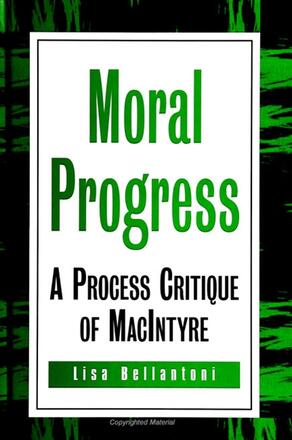
Moral Progress
A Process Critique of MacIntyre
Alternative formats available from:
Argues that in order to reinvigorate our moral inheritances we must endeavor not only to live well, but also to live better.
Description
Moral Progress examines the challenge emotivism presents to contemporary ethicists. Focusing on the thought of Alasdair MacIntyre and Alfred North Whitehead, Lisa Bellantoni refutes MacIntyre's belief that a return to traditional values which once enjoyed broad social consensus will restore our moral center. She maintains that our enduring disputes over these values mark our moral progress, helping us to recreate values that will address contemporary situations. Contrasting MacIntyre's theory with Whitehead's, she concludes that in order to reinvigorate our moral inheritances we must endeavor not only to live well, but also to live better.
Lisa Bellantoni is Assistant Professor of Philosophy at Quincy University.
Reviews
"This book provides an intelligent and vigorous account of Whitehead's conception of the advance of reason as it impacts upon moral enquiry. The author gives a very clear appraisal (often clearer than Whitehead's own account) of his understanding of the history of ideas as grounded in a naturally evolving cosmic play of forces in the midst of which practical reason emerges as just another (albeit a particularly important) feature of the emergent structure of the cosmos. Bellantoni locates this affirmation of Whitehead's view by means of a critique of MacIntyre's insistence upon a univocal tradition which I believe she quite successfully shows to be internally inconsistent. She argues that Whitehead's view provides a foundation for serious moral evaluation while at the same time allowing for a productive dialogue amongst varying traditions—a dialogue which MacIntyre's view abjures while ironically relying upon just such a dialogue for its own intelligibility. " — Brian John Martine, author of Indeterminacy and Intelligibility
"What I like most about this book is its general project—to present a viable Whiteheadian contribution to those contemporary discussions of ethics influenced by the work of MacIntyre. Bellantoni is a clear thinker, which is important in melding two such diverse philosophical standpoints. This book will be of significant interest to the growing number of process thinkers trying to make the difficult application of Whitehead's metaphysics to contemporary social and political thought. " — Judith A. Jones, author of Intensity: An Essay in Whiteheadian Ontology